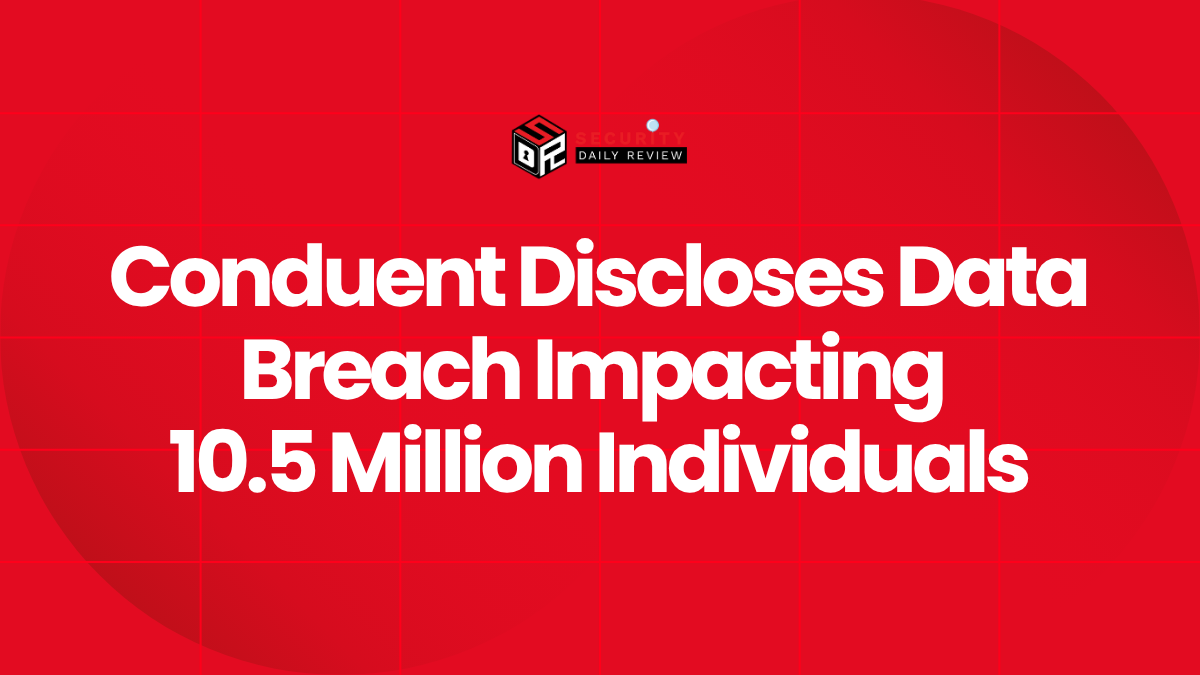A sweeping data breach has struck Conduent, a major American business services provider, compromising the personal data of more than 10.5 million individuals. According to filings with multiple U.S. state Attorneys General, the breach is tied to a vulnerability in the MOVEit file transfer software—an attack vector previously exploited by the Clop ransomware group.
The breach highlights the cascading impact of the MOVEit vulnerability and the significant scale at which third-party service providers can become points of failure, placing millions at risk.
Widespread Impact Reaches Across States and Sectors
Multiple State Breach Notifications Reveal Scope
In compliance with state-level data protection laws, Conduent submitted breach notification letters to Attorney General offices in California, Texas, and Maine, among others. These filings confirmed that the breach affected individuals across multiple state programs.
The compromised data includes:
- Full names
- Social Security numbers
- Medical claim information
- Insurance details
- Financial account information
These data types are commonly targeted in identity theft and insurance fraud schemes, raising alarms over downstream risk to victims.
Affected Programs Include Government-Funded Healthcare
Many of the impacted individuals appear to have been enrolled in government benefit programs administered by Conduent as a contractor. The Maine Attorney General’s filing alone acknowledges that more than 10.4 million individuals were affected through a single healthcare-related program facilitation.
This follows a familiar pattern in software supply chain incidents, where a breach in one vendor system can reverberate across numerous government and private sector clients, dramatically multiplying its effect.
Root Cause Links Back to MOVEit Vulnerability
Exploitation Mirrors Clop Ransomware Group’s Tactics
The breach stems from an earlier zero-day vulnerability (CVE-2023-34362) in MOVEit Transfer, a popular file transfer application developed by Progress Software. The flaw allowed unauthenticated attackers to execute SQL injection and exfiltrate databases.
Conduent initially disclosed in June 2023 that it had detected anomalous activity affecting a limited set of systems and had contained the threat. At the time, the company stated that its investigation was ongoing, and only a “limited amount of data” had been accessed.
As forensic analysis evolved, it became clear that the data exposure was significantly more extensive than initially estimated. The refined impact assessment, disclosed in March 2024, revealed just how deeply the MOVEit exploit had penetrated Conduent’s ecosystem.
MOVEit Zero-Day Has Created a Ripple Effect
The Conduent breach is one of hundreds linked to the zero-day flaw in MOVEit, making the incident part of a much broader security crisis. Since the vulnerability’s disclosure in mid-2023, over 2,000 organizations have either confirmed exposure or launched investigations.
MOVEit breaches have impacted:
- Financial service firms
- Universities and school districts
- Government agencies, including the U.S. Department of Energy
Clop, a ransomware-as-a-service (RaaS) group attributed to prior MOVEit exploit campaigns, has typically exfiltrated data during these attacks and posted stolen material on dark web extortion portals. However, there is no public confirmation that Conduent data has been leaked in such a manner.
Incident Response and Notification Timeline Raises Questions
Initial Containment Was Rapid but Full Impact Took Months to Surface
Conduent noted that it applied patches and restored vulnerable systems shortly after learning of the threat in early June 2023. The company has worked with third-party digital forensics experts and legal counsel to piece together the full scope of the intrusion.
Despite early containment, it was not until March 2024 that the company began issuing notifications to affected individuals—a delay that may draw scrutiny under increasingly stringent state-level data protection timelines.
Security practitioners emphasize the complexity of large-scale incident response, especially when healthcare or financial data is involved. Still, long timelines between breach discovery and disclosure can limit individuals’ ability to protect themselves against fraud and identity theft.
Steps Taken to Mitigate Future Incidents
In its notifications, Conduent indicated that it enhanced its cybersecurity posture by:
- Reviewing and updating third-party software inventory
- Implementing stricter monitoring of file transfer mechanisms
- Offering affected individuals free credit monitoring and identity theft protection services
The company did not confirm the number of clients impacted through its government contracts, but downstream breaches are likely given Conduent’s role in processing sensitive data on behalf of numerous institutions.
Broader Implications for Supply Chain and Vendor Security
Risk Management Must Include Continuous Vetting of Vendor Software
The Conduent incident underscores the critical need for organizations to maintain supply chain visibility. As third-party software continues to serve as an entry point for threat actors, cybersecurity teams must prioritize the following:
- Conducting real-time assessments of vendor patching practices
- Mapping data flows to identify where sensitive information is stored and transmitted
- Deploying network segmentation to limit blast radius in case of breach
- Strengthening contract language to enforce timely incident notifications
Supply chain attacks now present one of the most potent threats to enterprise data security. With over 10 million identities exposed through a single vendor’s use of vulnerable software, the Conduent breach may serve as another case study in the growing cost of unmonitored software dependencies.









